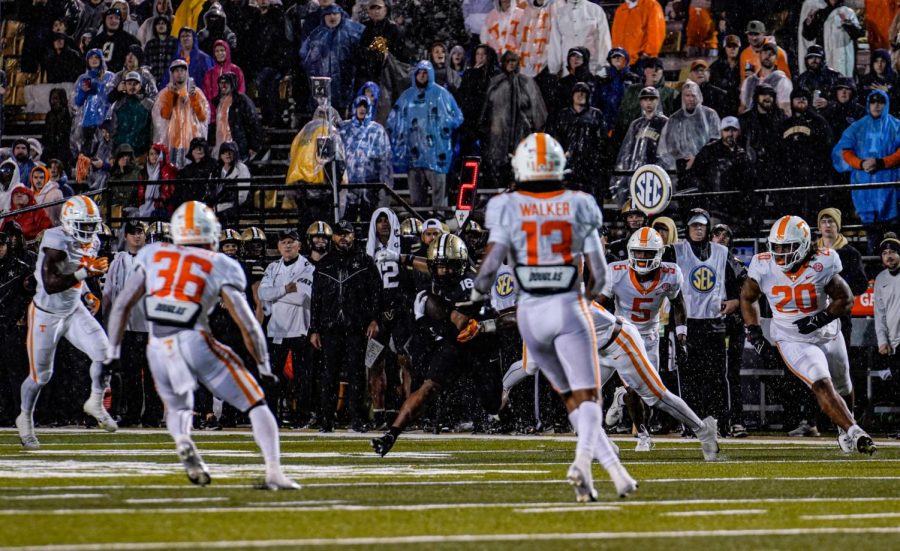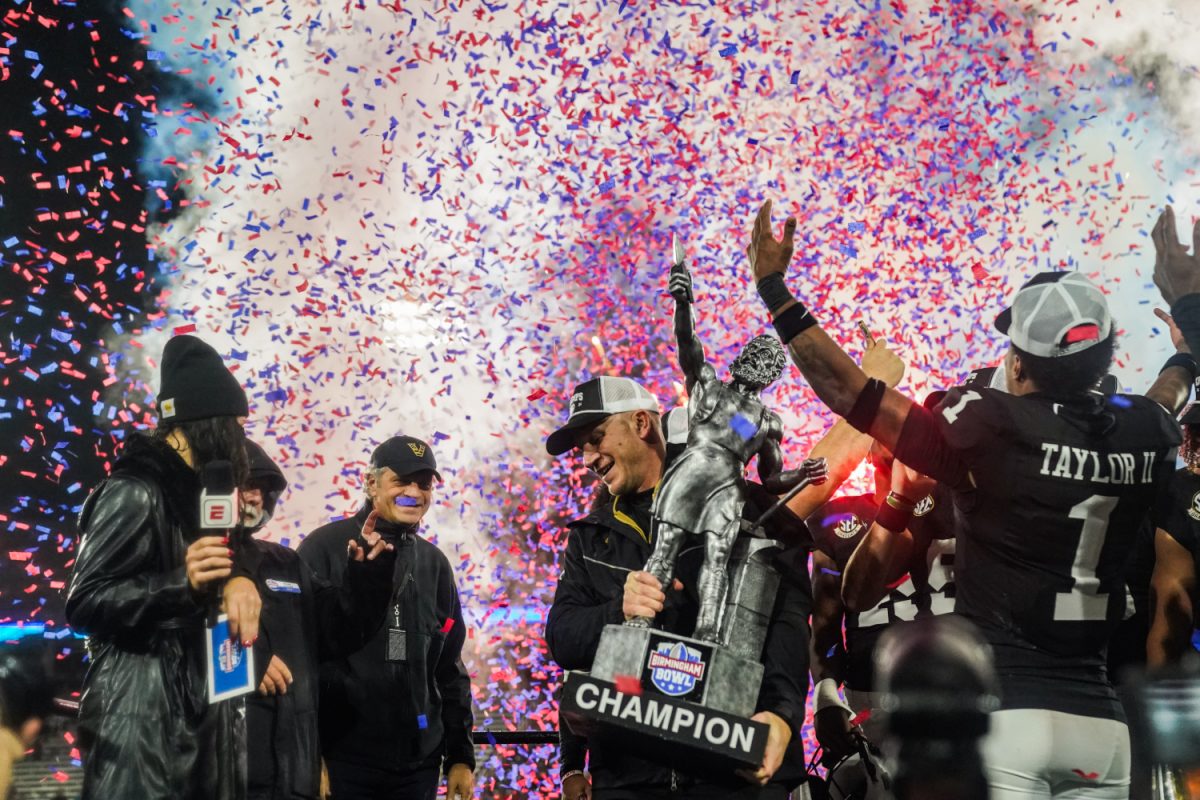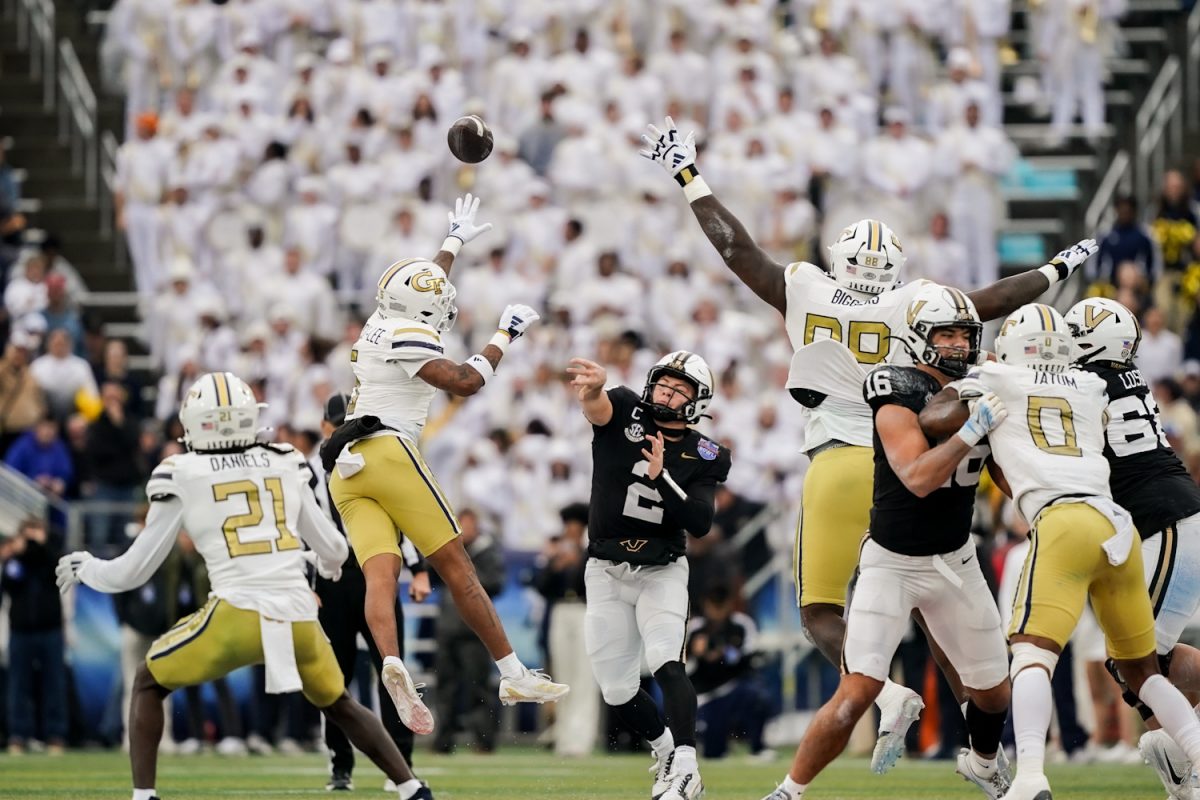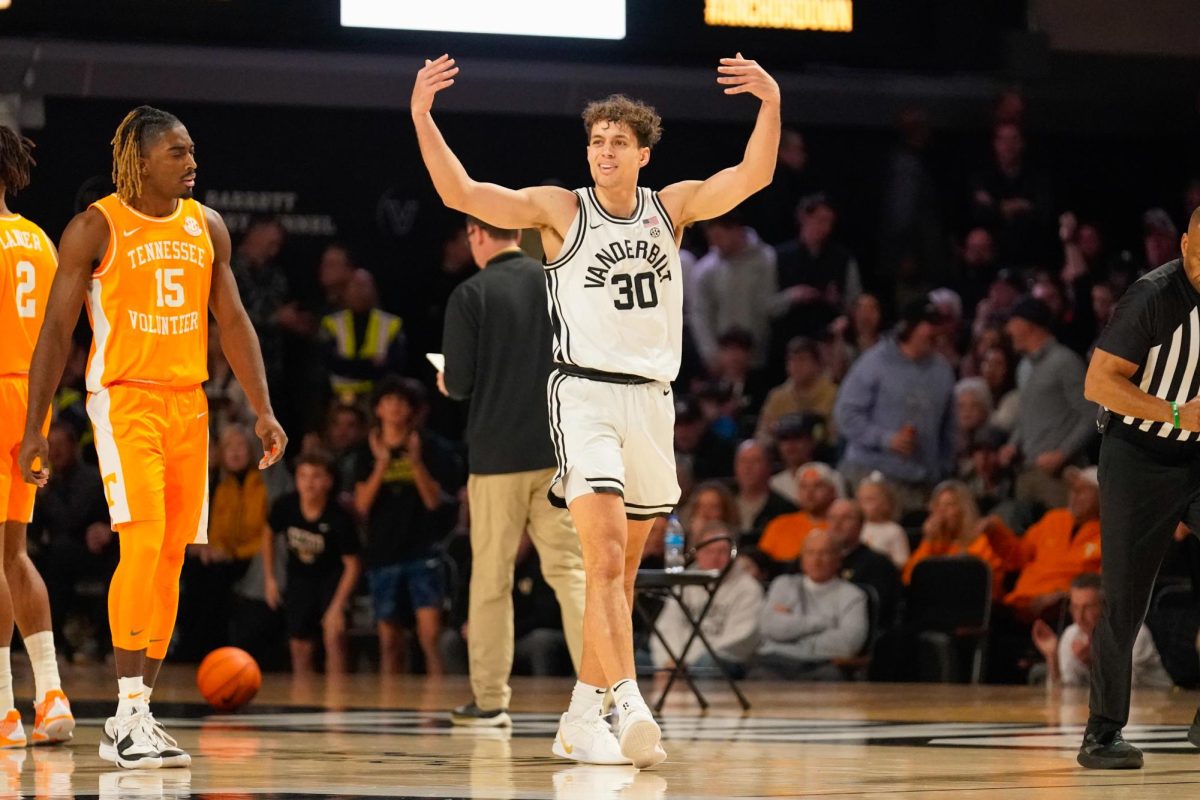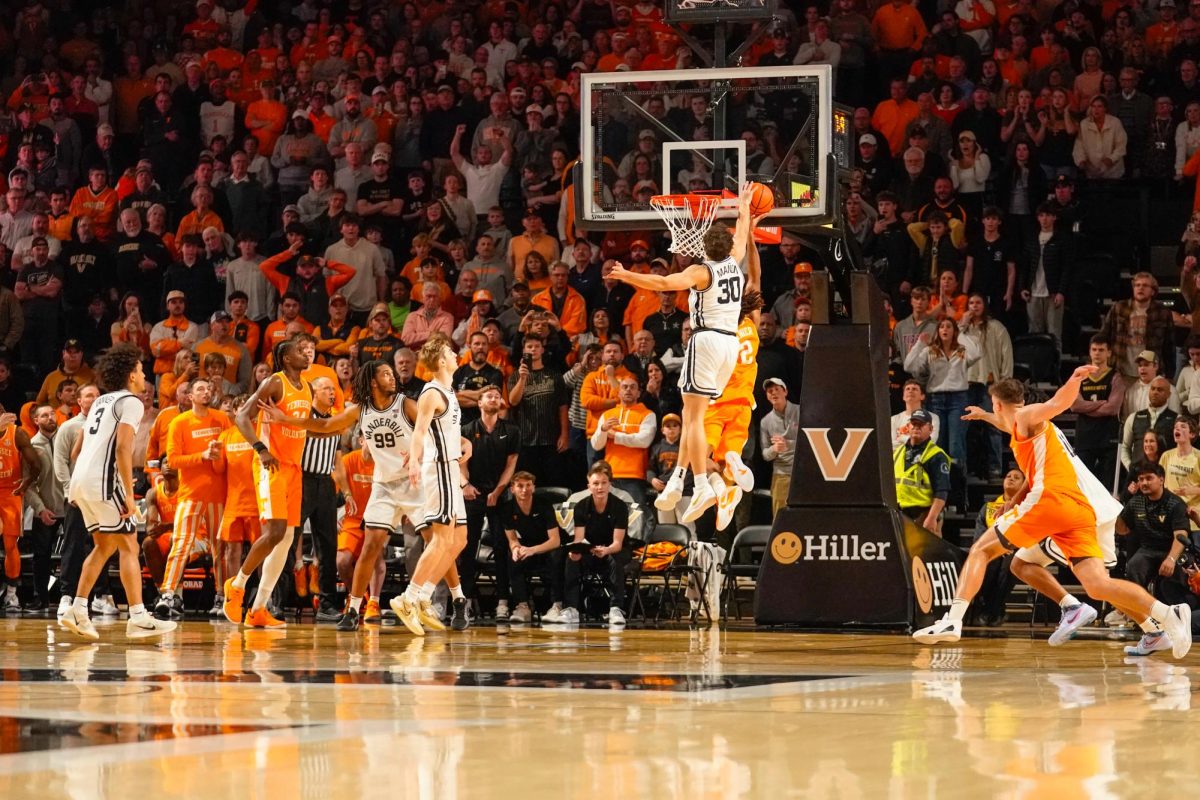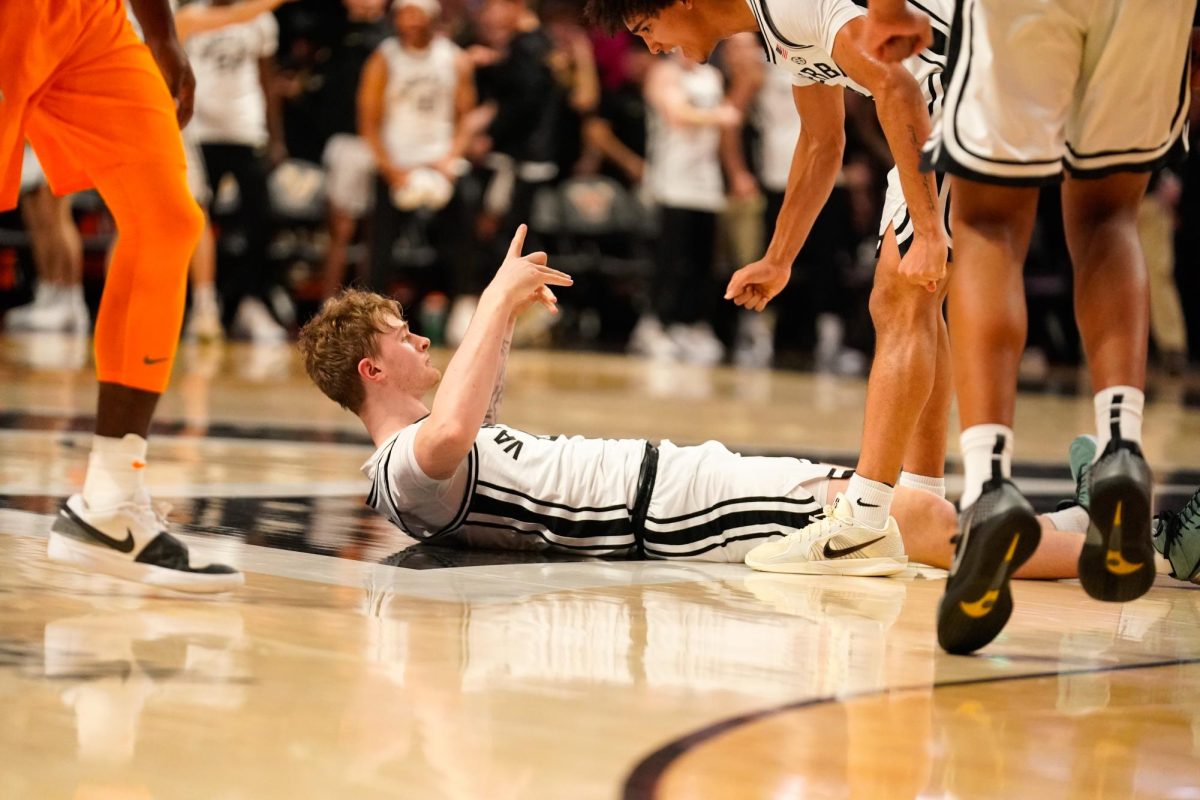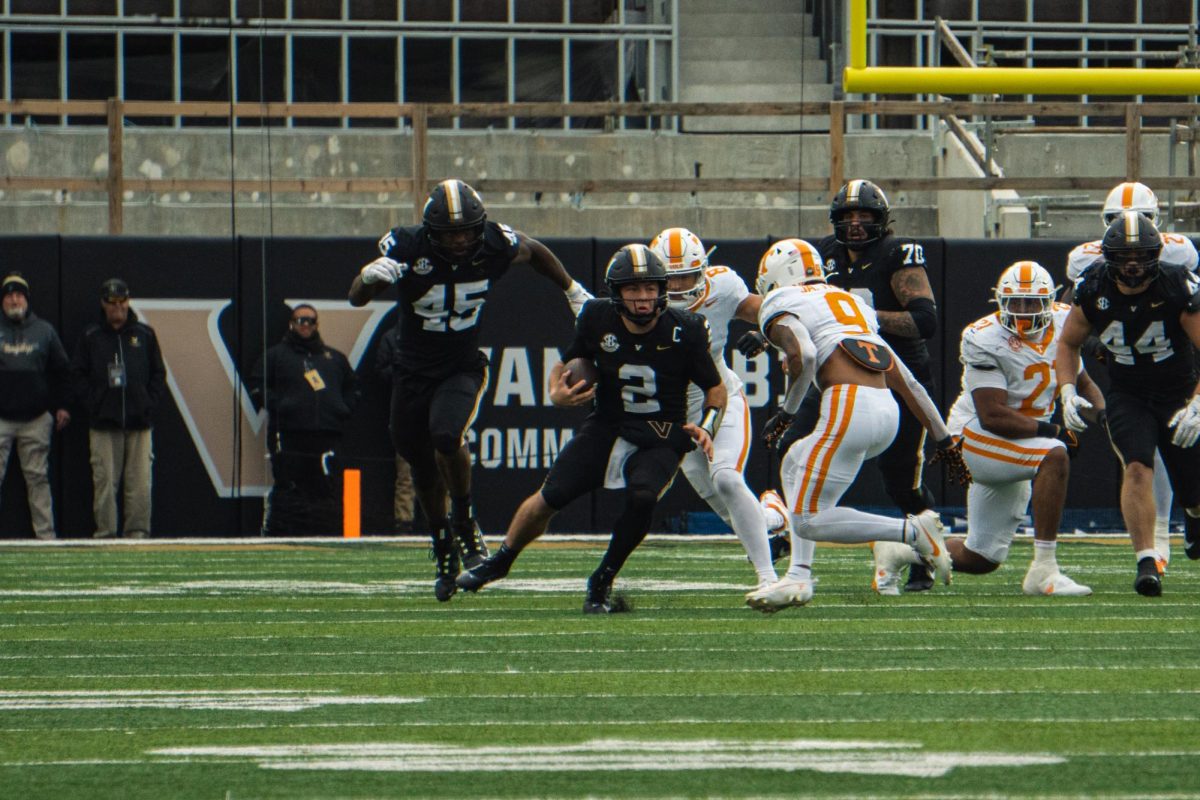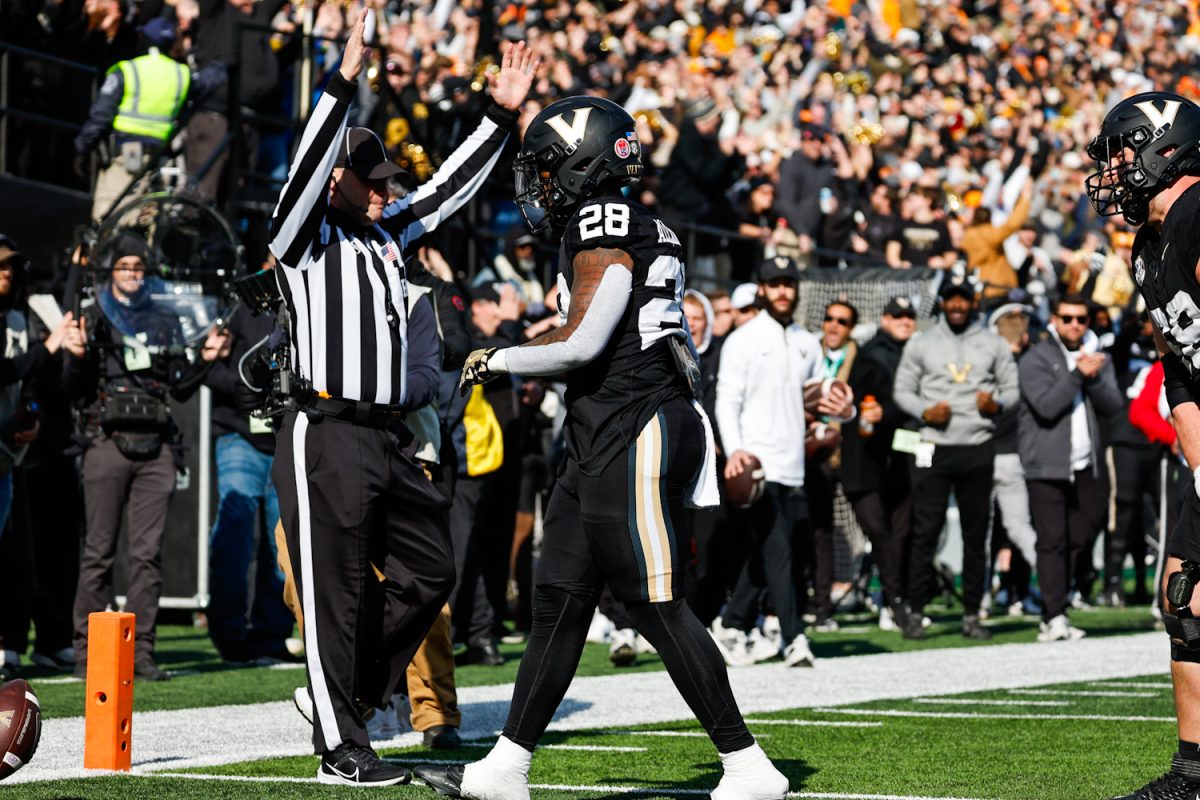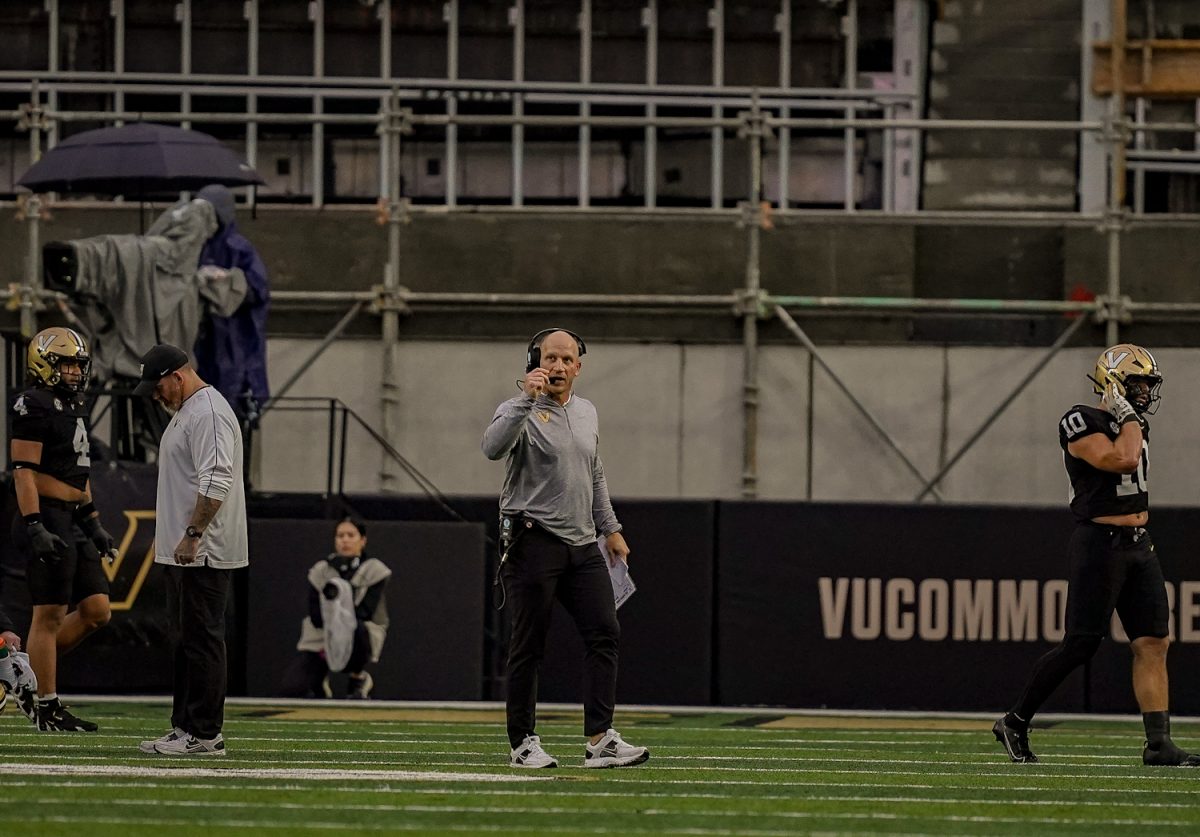Before the bye week, Vanderbilt delivered a performance that only added to its tumultuous season: being blown out the water by South Carolina, 47-6. In the Commodores’ largest margin in a loss this year, Vanderbilt looked utterly defeated from start to finish, allowing South Carolina’s Spencer Rattler to throw for 351 yards and 3 touchdowns, while Mario Anderson pitched in 102 yards and a touchdown on the ground. Offensively, Vanderbilt was littered with struggles, from costly fumbles to a measly 3.1 yards per rush and 3.7 yards per pass the entire game. Of Vanderbilt’s 13 drives, 8 ended in punts, with one being blocked and returned for a touchdown after a low snap. Out of the other five drives, four of them resulted in turnovers on downs or fumble recoveries by the Gamecocks, leaving one lone touchdown on the board.
Although the loss against South Carolina is nothing more than demoralizing, Vanderbilt still has one final game to play against the No. 25 Tennessee. The Vols defeated the Commodores in their final game last season in Nashville, 56-0. This year’s Volunteers have not lived up to the standard set by the Hendon Hooker-led Tenneessee of 2022, dropping the ball against the upper echelon of the SEC in losses to No. 1 Georgia, No. 8 Alabama and No. 10 Missouri. Yet, this team is still dangerous across the board with an abundance of talent and motivated due to its current two-game losing streak.
For Vanderbilt to have any shot of earning its first victory against its in-state rival since 2018 and avoid another winless slate of conference play, these three matchups should be the center of attention in developing a winning formula.
Jaylen Wright vs. Vanderbilt’s rushing defense
In their matchup last year, Tennessee running back Jaylen Wright finished with 160 rushing yards on a mere five carries, absolutely blitzing through the defensive ranks of the Commodores. He ultimately finished his breakout 2022-23 season with 875 yards and 10 touchdowns, solidifying himself as the lead back for Tennessee. He took that fantastic season and improved upon it this year, entering this week’s game with 938 rushing yards and 7.4 yards per carry, a statistic for which he ranks second in the nation. Wright has shown that he doesn’t need to touch the ball a lot to make an impact, being efficient as a spark plug and home run hitter that can strike at any moment.
On that same note, Vanderbilt has shown to also be vulnerable to opponents’ running game, especially when it comes to long, back-breaking rushes. Anderson broke a 72-yard run for a touchdown last week for South Carolina, as did Auburn’s Jarquez Hunter two weeks ago when he reached the paydirt after a 67-yard dash. Overall, the Commodores have not kept a team under the 100 rushing yard mark since Week Zero against Hawaii, becoming the No. 107 ranked rushing defense by giving up 176 yards per game on 5.08 yards per carry.
If Vanderbilt can’t slow down Wright, the game could get out of hand very quickly for the Commodores defense. With a minuscule margin of error, any chance of Wright breaking out for huge runs could turn drives into touchdowns swifty for the Volunteers, meaning the Tennessee running back needs to be a point of concern for Vanderbilt.
Vanderbilt passing attack vs. Tennessee’s injured secondary
Although looking at box scores could make someone believe the Vanderbilt offense is simply dysfunctional, this unit has had success at times through its key strength: putting the ball in the air. Coming into the season, it was already noticeable that this Commodore air raid could potentially be deadly, between the projected arm talent of AJ Swann and the stout ranks of talent in the receiving core. Even though there have been two quarterback changes, that threat still remains. Vanderbilt has its best chances of winning when it has thrown the football successfully. This strategy takes the pressure off of a harrowing running game and gets the quarterback in a groove.
This avenue of attack becomes slightly more feasible this Saturday because Tennessee has taken major hits in its secondary. Star cornerback Kamal Hadden underwent season-ending shoulder surgery, with other defensive backs like Tamarion McDonald and Wesley Walker missing the Georgia game last week as well. The Volunteers give up 10.8 yards per completion and 235.5 passing yards per game, only being the No. 87 ranked passing defense in the country. A limited secondary group and an eager, up-tempo passing playstyle would give Vanderbilt an opportunity to take advantage of its limited strengths while preying on a weakness of Tennessee.
Being able to keep up this playstyle also falls in the trenches, on the shoulders of an offensive line that has had its own issues. What the Volunteers may lack on the last line of the defense it makes up for by being one of the most dominant pass rushing teams in college football. In fact, the Volunteers are No. 7 in the FBS with 34 sacks and have an average of 3.09 a game while also being No. 5 in tackles for loss with 7.8 per contest. There lies a huge challenge awaiting the Commodores offensive line. But, if the passing attack needs to get going, the Vanderbilt O-line needs to do whatever it can to stop Tennessee rushers from getting to the quarterback. A higher frequency of clean pockets means a higher chance of Vanderbilt breaking out important completions.
Vanderbilt vs. the future
One of the important discussions that will be had about this year’s Commodores is regarding progress. After last season’s finish garnering some optimistic expectations about Clark Lea’s Team 3, Vanderbilt has found itself regressing. Grumblings of questions and concerns about this program continue to float around Vanderbilt, meaning eyes could already be turning to the offseason, especially in the modern transfer portal and NIL era. Lea has been adamant about developing his players from the ground up, but if this season has shown anything, something needs to change with his methods.
The matchup with Tennessee will be the final game of many seniors and potential transfers, meaning it could be a litmus test for younger players to see where they fit in the grand scheme of Vanderbilt’s team. The Commodores have flashes of young talent across the board, from first-year wideout London Humphreys to standout sophomore linebacker Langton Patterson alongside other underclassmen. Retaining this talent will be important to Lea’s regime, while also getting a headstart on building this roster in the offseason.
While some questions cannot be answered through the Tennessee game — like the ongoing quarterback controversy, the Commodores can hope to gather some inspiring performances from young players who can develop semblances of optimism for the program going forward. Lea has to embrace the future in more ways than one. The younger athletes may provide a sharp increase in effort, eager to make splash plays to get eyes on them. At the same time, Lea has to evaluate players who will be important to this program’s advancement, while also preparing to dive into an offseason brimming with transfers and endorsement money. Yet, before that offseason arrives, there is a game to be had, and nothing could work better in Lea’s favor than a massive upset against the ever-so formidable Volunteers.
Vanderbilt faces off against Tennessee at Neyland Stadium in Knoxville on Saturday, Nov. 25 at 2:30 p.m. CST.

